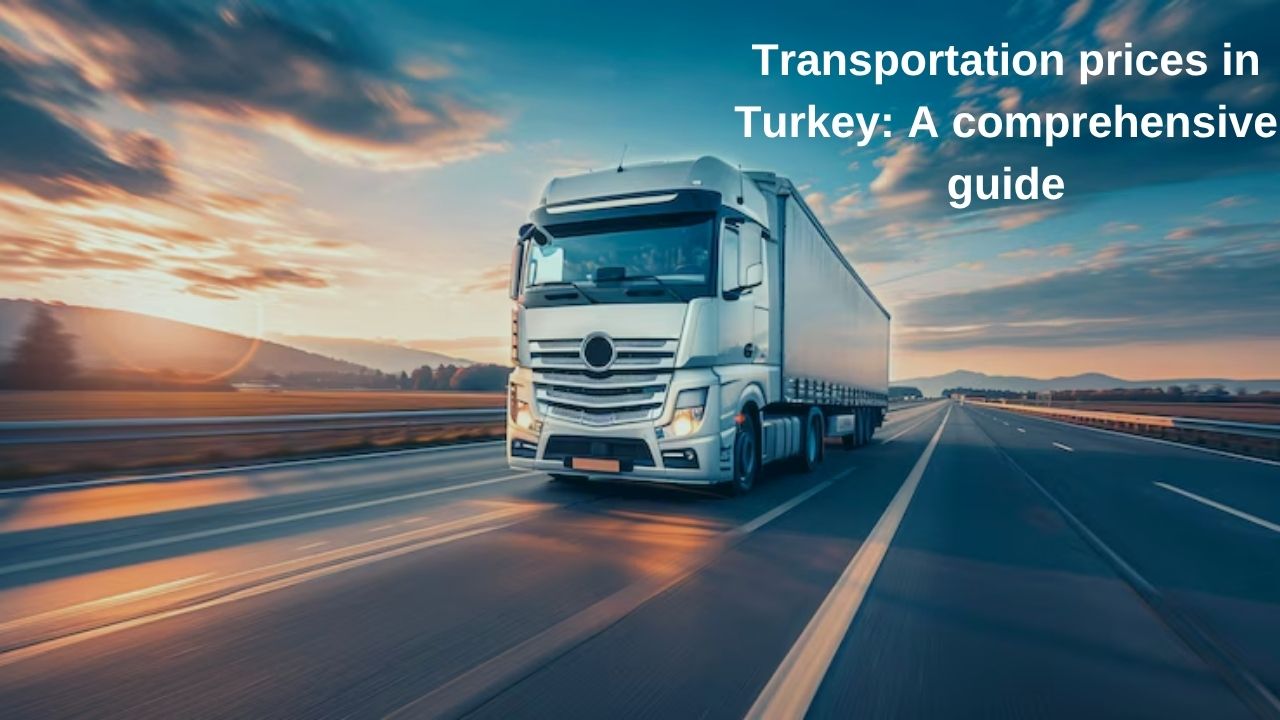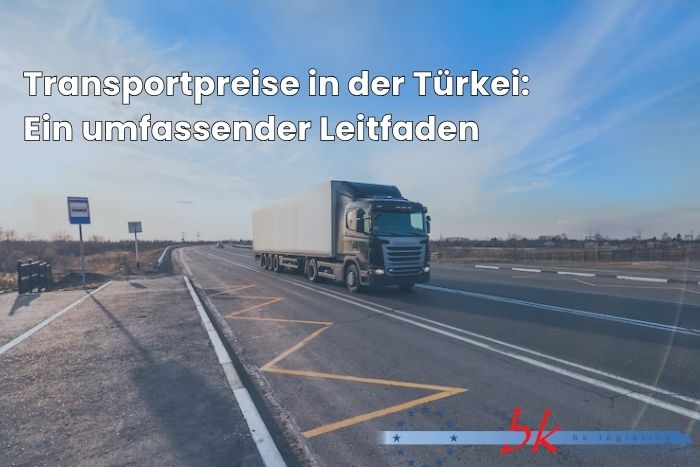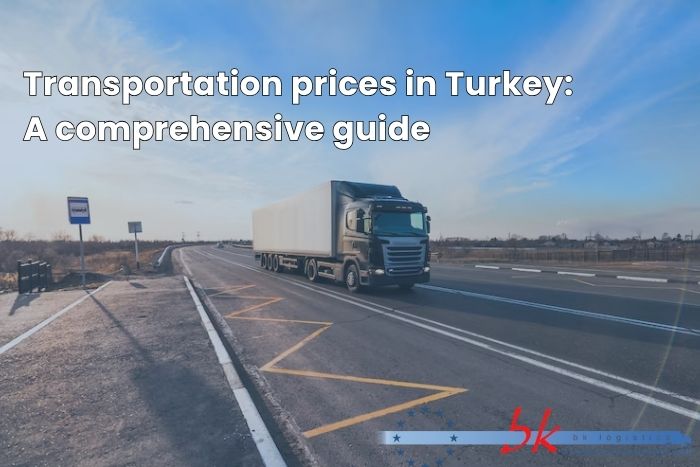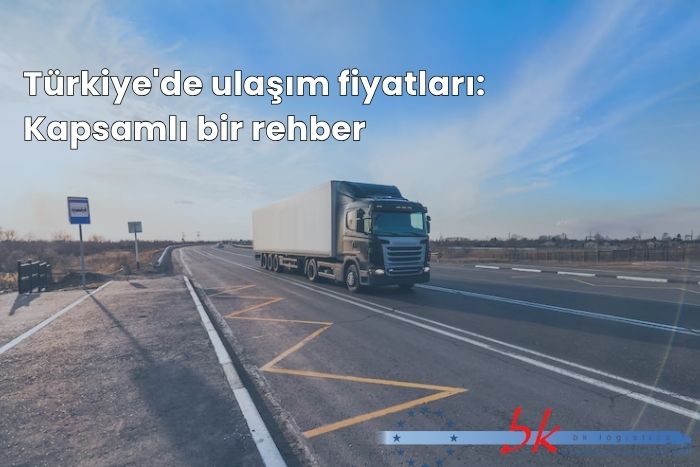News
Transport prices in Turkey: A comprehensive guide
Contents
-
General Overview of the Turkish Transportation Sector
-
Key Factors Determining Prices
-
Differences Between Domestic and International Transportation
-
Cost Structure in Road Transportation
-
Rail Transportation and Economic Advantages
-
The Role of Ports in Maritime Transportation
-
Air Freight: The Cost of Speed
-
The Impact of Digitalization and Technology on Prices
-
Regional Price Fluctuations
-
Methods Providing Companies with Cost Advantages
-
Future Trends for the Turkish Transportation Sector
General Overview of the Turkish Transportation Sector
Turkey has a significant advantage in the transportation and logistics sector: its geographical location as a strategic bridge between Asia and Europe facilitates both the development of domestic trade and integration into international logistics networks. Transportation capacity increases annually thanks to state-supported infrastructure investments, highway projects, high-speed trains, and port expansions. Major projects such as the Marmaray and Yavuz Sultan Selim Bridge contribute to cost reduction by accelerating transit passages.
In recent years, the transportation sector has grown continuously due to private and public investments. The increasing number of logistics centers enables more planned handling of storage and distribution processes. The extensive highway network covering Turkey’s 81 provinces and the developing railway network facilitate freight transportation. These developments have made transportation costs more competitive and improved service quality.
Key Factors Determining Prices
Transportation prices are influenced by a combination of many factors. Fuel costs are among the most critical cost factors in the industry. In particular, exchange rate fluctuations directly affect the prices of imported fuel, which are reflected in transportation fees. Additionally, operating costs such as labor costs, vehicle maintenance costs, and highway and bridge tolls determine the final transportation price.
Furthermore, details such as the length of the transportation route, the type of cargo, the mode of transportation (road, sea, air, or rail), and delivery time affect pricing. Additional costs are unavoidable, especially for products requiring special transportation conditions (cold chain, hazardous goods, etc.). Industry companies offer flexible pricing based on these factors, creating price diversity in the market.
Differences Between Domestic and International Transportation
While domestic transportation can be organized more flexibly and with controlled costs, international transportation is subject to numerous legal and logistical factors. Approval processes and route planning are faster in domestic transportation, whereas international transportation requires time-consuming processes such as customs procedures and country-specific transportation permits. This can directly lead to higher prices.
In international transportation, exchange rates, tax regulations, and the logistics infrastructure of the destination country also play a significant role. For example, there are significant time and cost differences between transportation to Europe and Central Asia. This situation requires a more comprehensive analysis of logistics planning. Collaboration with professional solution partners is essential to achieve competitive prices in both national and international transportation.

Cost Structure in Road Transportation
Road transportation is the most widely used transportation method in Turkey. Due to its flexible structure, it is often preferred for short and medium distances. Most costs in this transportation mode are attributed to fuel, driver salaries, and vehicle maintenance. The size and technical equipment of the fleet also influence pricing.
In road transportation, regional demand, cargo density, and vehicle return costs must also be considered. Empty trips are a significant cost factor for companies. Therefore, transportation companies try to minimize costs by balancing round-trip loads. This balancing provides a competitive advantage, especially in intercity logistics chains.
Rail Transportation and Economic Advantages
Rail transportation offers significant advantages, particularly for transporting large quantities and heavy loads. Due to fuel savings, environmental friendliness, and lower personnel requirements, it is a more economical option than road transportation. Modernization efforts by TCDD in Turkey enable greater use of railways in commercial transportation.
The integration of railway lines with ports and industrial zones makes logistics processes more interconnected. This offers cost advantages, especially for exporting companies. However, inadequate railway infrastructure in some regions may limit rail usage. Future investments in rail transportation will further enhance these price advantages.
The Role of Ports in Maritime Transportation
Maritime transportation plays a crucial role, particularly in foreign trade. Turkey has an extensive port network, thanks to its coastal location along the Aegean, Mediterranean, and Black Sea, facilitating access to global markets. The integration of ports into logistics centers and the expansion of container terminals directly impact costs.
Maritime transportation generally enables large cargo volumes at low unit costs. However, factors such as port fees, loading-unloading fees, and waiting times also affect pricing. As port efficiency increases, transportation costs decrease. Therefore, choosing the right port can make a significant cost difference for companies.
Air Freight: The Cost of Speed
Air transportation is a preferred method when speed is critical. It is generally suitable for perishable products, high-value goods, and urgent deliveries. However, due to high transportation costs, it is not a common choice. Airport taxes, fuel fees, and cargo fees are the main factors that increase prices.
The development of major cargo hubs like Istanbul Airport contributes to price stabilization. Turkey’s goal of becoming a transit air freight hub could make air transportation more accessible in the future. Companies can enhance customer satisfaction by choosing this method when rapid delivery is required.
The Impact of Digitalization and Technology on Prices
The transportation sector is also affected by digital transformation. Thanks to intelligent fleet management systems, route optimization software, and automated tracking systems, the efficiency of logistics processes has been enhanced. This efficiency directly translates into prices, reduced fuel consumption, and time savings.
Furthermore, dynamic pricing tailored to customer needs ensures more balanced competition. Although technological investments may seem costly in the short term, they enable significant long-term savings for companies. Digitalization in transportation companies improves both cost control and service quality.
Regional Price Fluctuations
Transportation prices in Turkey vary regionally. In regions with limited infrastructure, such as Eastern Anatolia and the Southeast, transportation costs are higher due to both road quality and transportation time.
In western regions, more economical transportation is possible thanks to a well-developed road network and the density of logistics centers. Cities like Istanbul, Izmir, and Bursa, being logistically central, have more balanced prices. Companies that plan transportation considering these regional differences can achieve cost advantages.
Methods Providing Companies with Cost Advantages
Companies aiming to control transportation costs must apply specific strategies. Intelligent route planning software saves fuel and shortens transportation time. Additionally, cargo consolidation reduces unit costs by allowing more cargo to be transported simultaneously.
Integrated supply chain management ensures more efficient storage and shipping processes. Long-term transportation contracts enable fixed price advantages. Choosing the right logistics partners is crucial for optimizing quality and cost balance.
Future Trends for the Turkish Transportation Sector
Sustainability, digitalization, and green logistics will play a central role in the transportation sector in the future. Electric trucks, transportation vehicles powered by renewable energy, and carbon footprint calculations will become new standards. This transformation will also lead to more transparent and sustainable prices.
New ports, railway lines, and air freight terminals are planned in line with Turkey’s goal of becoming a logistics hub. All these investments will make transportation prices more affordable. Those who adapt to this change now can more easily gain competitive advantages.



